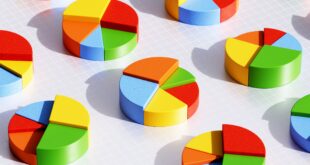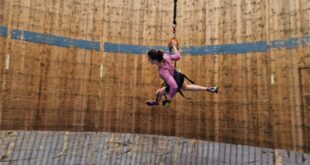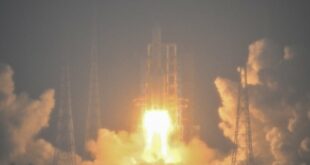AI art may seem new, but the technology has been infiltrating our daily lives for some time

Artificial intelligence is in the midst of a revolution.
Generative AI, like ChatGPT, can spit out an essay that sounds as if it was penned by a human, and create original "art" from a series of text prompts. But AI's potential is useful and terrifying at the same time.
From deepfakes to self-driving cars, the way we use AI today may seem revolutionary, but Cyborg Society, a documentary from The Passionate Eye, shows us it's just another step forward for technological progress.
The truth is we've been harnessing the computing power of AI for some time now.
"One of the recent applications has been in the field of AI-generated art," author and generative AI expert Nina Schick says in the documentary. "And the big breakthrough point for AI art are these text-to-image generation models.… The emphasis, which used to be much more on disinformation … has shifted now more to the creative potential of this technology."
But if you think this is the first time AI has had a hand in producing art, think again.
The technology working away on your smartphone analyzes raw data from what it sees and hears and enhances it in real time. AI adjusts or adds to what the camera captures so nighttime shots appear brighter or a photo of the moon actually looks good. It can recognize a human face and use autofocus to keep your subject crisp, or boost colours to make your shots pop more than in real life.
All that power in your pocket is AI at work, transforming what reality looks like.
AI filters out background noise during your phone calls so you sound clear. It can even translate your voice into another language instantly. Elsewhere, photo editing software like Photoshop has been using AI to improve and adjust digital images for years.
The difference now? AI is taking on more tasks we see as uniquely human, like generating ideas and using word prompts to create images from scratch based on examples it finds on the internet. Artists and anyone who writes, films or otherwise creates for a living may understandably feel as if their jobs are under threat.
But while this leap in progress might seem revolutionary, Schick makes a good point: "This as a medium is actually becoming a tool for a new form of artistry, just like photography. It must have been transformative when, all of a sudden, instead of studying a landscape, picking all the pigments for your colour, labouring at painting that landscape on a canvas, cameras came around, and with the click of a button, you could capture that landscape.…
"I think the same thing is going to happen with AI-generated art. Artificial intelligence is going to become the medium by which most humans produce all digital content."
While the fear of AI taking over remains for many experts, the technology has immense potential nearly everywhere in society, from faster, more accurate weather forecasting to autonomous farming and herbicide reduction. The question is, At what point will AI transition from being a tool used by humans to becoming an autonomous entity that can make choices independently — and what ethical and societal impact will that have?
By the way, that last sentence was written by ChatGPT. Could you tell?
Watch Cyborg Society on The Passionate Eye.

Add some “good” to your morning and evening.
A variety of newsletters you'll love, delivered straight to you.
*****
Credit belongs to : www.cbc.ca
 MaharlikaNews | Canada Leading Online Filipino Newspaper Portal The No. 1 most engaged information website for Filipino – Canadian in Canada. MaharlikaNews.com received almost a quarter a million visitors in 2020.
MaharlikaNews | Canada Leading Online Filipino Newspaper Portal The No. 1 most engaged information website for Filipino – Canadian in Canada. MaharlikaNews.com received almost a quarter a million visitors in 2020.







